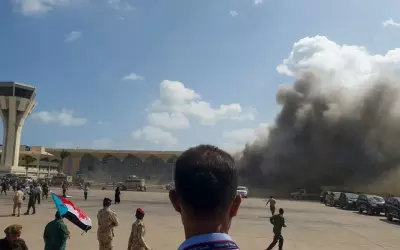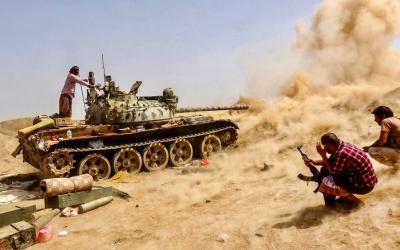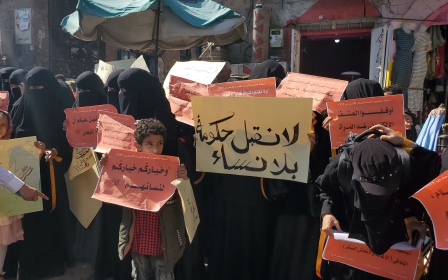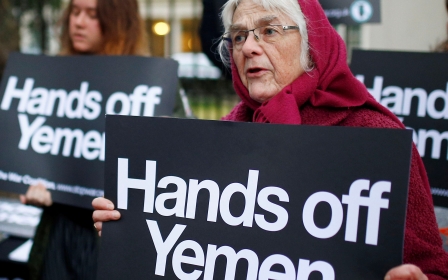Aden's terrified residents fear more attacks after return of Yemeni government
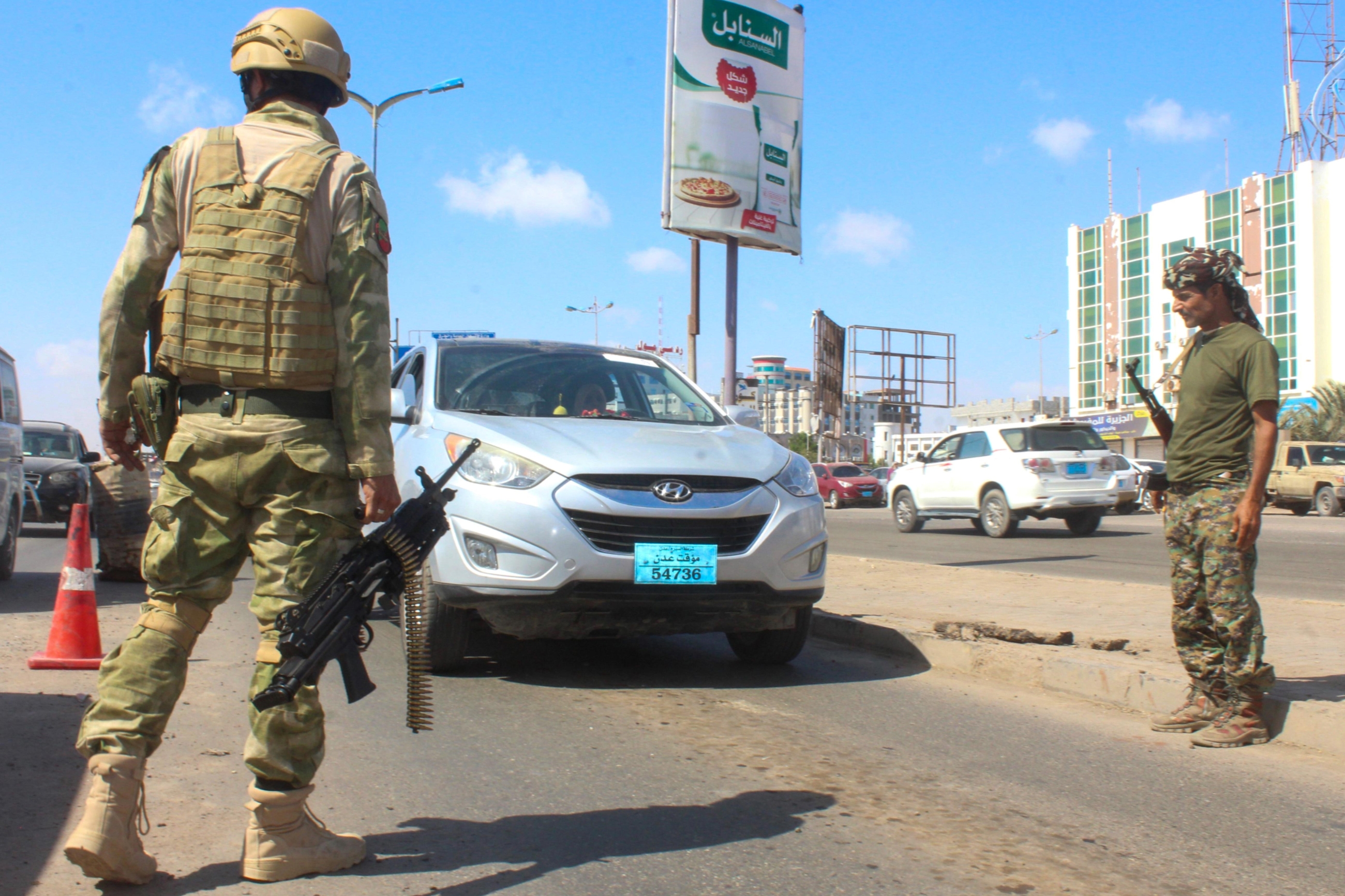
Many residents of Aden city woke up to a sense of dread on Thursday morning.
Military checkpoints had been erected around the city and security forces were stationed on the streets - as the impact from the previous day's attacks lingered.
Locals made tentative attempts at resuming their regular lives, but many expressed fears over what the coming period would hold, with expectations of more attacks.
Wednesday's attacks on Aden International Airport and the presidential palace put the country on edge, once again - something that has become all too familiar for its war-fatigued citizens as the five-year conflict drags on.
As members of a newly formed government landed in Aden about noon on Wednesday, missiles hit the airport in an attack aimed at undermining any potential stability from a recent agreement between rival authorities.
The assault killed at least 25 people, and wounded 110 more, including children, aid workers, journalists, and members of the International Committee of the Red Cross.
Prime Minister Maeen Abdulmalik visited the wounded on Thursday in an effort to send a message to citizens that Aden was still safe and cabinet members could move around the city.
While the move was aimed at alleviating fears, some residents who spoke to Middle East Eye said it was not enough to reassure them and failed to provide them with answers as to who was behind the attacks, for which no one has yet claimed responsibility.
Years of scepticism
An investigation committee, formed by President Abd Rabbu Mansour Hadi, has started looking into the attack, but some residents are sceptical that it will deliver results.
"This is not the first attack on Aden, many have taken place in the last five years, and we have heard about investigation committees before, but we have never seen results," Mohammed Gamal, a resident of Aden, told Middle East Eye.
"Forming investigation committees is only a way to absorb the anger against the government and an attempt by the president to calm the situation, we know there won't be any results."
'When the government was [working out of] Saudi Arabia, Aden was safe, and we did not experience such attacks'
- Mohammed Gamal, Aden resident
Gamal said that people in Aden were worried and their city no longer felt safe.
"In the past year, when the government was [working out of] Saudi Arabia, Aden was safe, and we did not experience such attacks," he said.
"But the attacks have returned to terrify us as soon as the government is back in Aden."
The new joint government was a result of a Saudi-sponsored agreement between nominal allies the Southern Transitional Council (STC) and Hadi, with the aim of ending the infighting in the anti-Houthi camp.
"Safety is a priority for [the] people in Aden and if the return of the government will bring back attacks on the city, we hope they can leave it and let us enjoy peace," Gamal said.
After years of disappointments and instability, Aden's residents say they have a hard time believing the promises made by the government and other powerful parties.
"We have heard promises about protecting Aden and making it a safe place, but the government can't do anything to stop missiles or even clashes."
Who attacked the airport?
The Saudi-led coalition has accused the Houthi movement, which it has been fighting since intervening in Yemen on behalf of the government in 2015, of being behind the attack on Aden.
"The information we have indicates that the Houthi militia, backed by Iran, tried to attack the government," said Yemeni Foreign Minister Ahmed Awadh bin Mubarak.
The STC also issued a statement accusing the Houthis of attacks.
The Houthi Political Council has rejected the accusations, saying that rival parties in Aden were trying to implicate the movement in their internal issues.
In response to the attack, the coalition attacked Sanaa on Thursday, with air strikes hitting the capital's airport and several other sites in and around the Houthi-held city.
"The investigation committee is probing the attack and we should not accuse any party while it is still at work," a source in the Police Office in Aden told MEE on condition of anonymity because he was not authorised to speak to the media.
"We do not have any evidence to accuse anyone, and we agree that the Houthi is the main enemy and this group has been destroying the country, but we cannot accuse them but should wait for the results."
The source claimed that the city was currently in a better place, with security forces and the police doing their best to keep the city secure and help the government work from Aden.
"We hope Aden will not witness any more attacks and we will do our best to support the government to start working, building and carrying out development work, as that should be a priority."
Joint government
The source said that although the attacks had terrified civilians, it should not be an indicator of a forthcoming bad period, given that the government members carried on to their destination of the presidential palace.
"That behaviour indicates this government is different and its ministers will work hard for the sake of Yemen."
Veteran Yemeni journalist Mohammed Ali said that while this was not the first attack on Aden, he believed there may be more coming. Still, he said the new government gave him reason for optimism as well.
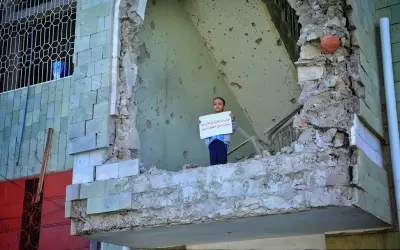
"In the past years, the government used to flee Aden after an attack, but this time it still entered Aden - and this was a solid message that this joint government will work even when [the city is] under attack," he told MEE.
Ali said that government members must confront and overcome the challenge of functioning in a country at war, where attacks were commonplace.
"This government has accepted to work in wartime and they understand what that means very well. If they continue to work from Yemen, many problems will be solved," he added.
Ali said he was happy that the joint government was composed of both the STC and members allied to the president, as neither camp would be accusing the other of creating chaos.
"Previously, after an attack, we used to hear accusations between the STC and the [former] government, but now no one has accused the other, instead they are awaiting the results of the investigation.
"It is true that they have accused the Houthis - but they did not accuse each other."
This article is available in French on Middle East Eye French edition.
Middle East Eye delivers independent and unrivalled coverage and analysis of the Middle East, North Africa and beyond. To learn more about republishing this content and the associated fees, please fill out this form. More about MEE can be found here.


